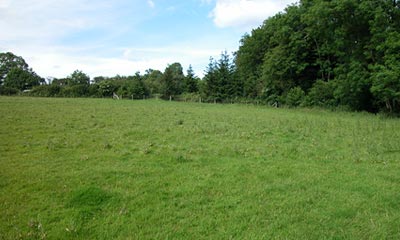Townies set their sights on farmland
Investment: Rural land prices are soaring, says Rupert Jones
Perhaps they should be dubbed "buy-to-graze" investors: the growing army of urbanites who are buying up farmland as an alternative to bricks and mortar or a pension plan - or simply because they want to escape the hustle and bustle of city life.
The price of farmland has risen by 9% in the past year, fuelled by a surge in the number of "lifestyle buyers", some armed with City bonuses, plus an influx of Irish farmers, according to a report this week from the Royal Institution of Chartered Surveyors (Rics).
It found that the average cost of a hectare of farmland now stands at £7,389 (£3,066 an acre) - up from £5,759 (£2,330 an acre) at the start of 2004. About half of the land that changed hands during April 1 to June 30 was snapped up by "non-farmer individuals", with the figure rising as high as 56% in the north-west, which takes in the hot spot areas on the outskirts of Manchester and Chester.
Much of it is down to townies keen "to escape from the madding crowd" and realise their dream of owning their own little smallholding in the countryside, says Rics spokeswoman Sue Steer. "That sort of rural idyll is quite appealing to a lot of people."
Popular TV programmes such as the reality show Jimmy's Farm and the BBC1 drama series Down to Earth, about a London family who relocate to deepest Devon, have clearly played their part in highlighting the attractions of rural life.
So who are these lifestyle buyers and why are they buying farmland? Surveyors say it is a cross-section of people - from downshifting city dwellers keen to escape the rat race and get back to nature, to self-made business people who want a reasonable-sized family home with a paddock down the road, to those very much buying for investment reasons, perhaps in the hope that the land will one day secure planning permission for homes. The proliferation of "landbanking" firms selling small plots of farmland to investors at thousands of pounds a pop are testament to the fact that a great many people have bought into the old saying that "they don't make land any more".

Some of the buyers are horse owners, others older people attracted by the potential inheritance tax perks. Then there are those who hear the neighbouring field is up for sale and are desperate to acquire it to prevent it falling into the hands of a property developer or becoming a Gypsy encampment. "There are a lot more lifestyle buyers out there - people who just want to own a piece of England," says Tony Rimmer at surveyor firm Carver Knowles, based in Chester. "Everybody likes to be able to say, 'That's mine'." This strong demand means farmland on the edge of Chester is going for anything between £7,500 and £12,000 per acre, with prices up almost 25% over the past two years.
Sue Steer runs Cheshire-based surveyors Steer Ethelston Rural, which is offering for sale Butterlands Farm, a 116-acre organic farm in the Peak National Park near Macclesfield. The guide price is £950,000 for the land and buildings. "We have had about 85% interest from non-farmers," Ms Steer says. "The 85% have been quite an interesting variety of people." They include a Manchester businessman with young children who "wants a nicer place to bring them up", a restaurateur interested in running a farm to provide meat for his restaurants, and a number of older people who are looking at it from an inheritance tax point of view.
There are generous "agricultural reliefs" available for farmhouses and land, which can mean that in some cases there is no tax to pay, but HM Revenue & Customs is cracking down on people it suspects may be trying to avoid the tax by pretending their smart country house is a working farm.
If the best part of a million pounds for an organic farm is out of your price range, how about 13.5 acres of prime grazing land plus stables near Marlborough in Wiltshire? Offers in excess of £140,000 are being invited. Chartered surveyor firm Woolley & Wallis is handling the sale on behalf of the owners, Olympic gold medal-winning hurdler David Hemery and his wife.
Richard Nocton at the firm says it has had "a huge number" of people expressing interest in buying the land, even though there is no dwelling on it and permission for residential development probably wouldn't be granted. Some are looking to buy it as an investment, some have talked about running it as an equestrian business, and some want to purchase it for their own use.
They include an accountant who was looking at putting in an offer on the basis that he would invest in the property instead of putting money into a pension, and would then let it out. "Earlier this year, I sold a farm to a farmer. I was so amazed I sent a press release to the Farmers Weekly," says Mr Nocton.
guardian.co.uk, 12.08.2006
